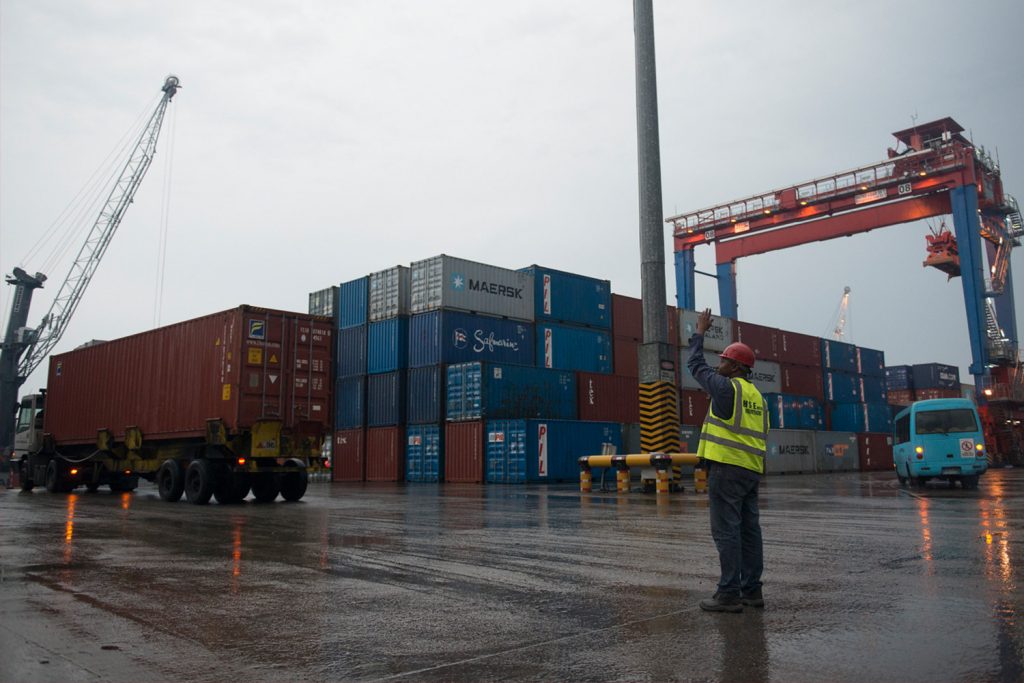The Africa CEO Forum, recently concluded in Abidjan, Ivory Coast, served as a platform for discussing critical issues pertaining to Africa’s economic development, particularly focusing on the crucial role of infrastructure, logistics, and public-private partnerships. A key takeaway from the forum was the emphasis on collaborative investment strategies to unlock Africa’s immense growth potential. Igor van den Essen, Regional Managing Director, Africa and Europe at APM Terminals (APMT), underscored the importance of public-private partnerships as the cornerstone for sustainable and inclusive growth on the continent. He argued that such partnerships are not merely transactional arrangements but rather collaborative endeavors that involve shared knowledge, co-investment, and a long-term vision for development. This approach, he suggested, is crucial for tackling Africa’s infrastructure deficit and fostering lasting economic progress.
Van den Essen highlighted APMT’s commitment to this collaborative approach, citing their ongoing discussions with Nigerian authorities to upgrade the Lagos terminal. This initiative exemplifies the practical application of public-private partnerships, focusing on improving port capacity, enhancing connectivity, and reducing operational costs. These efforts aim to create a more efficient and competitive trade environment, benefiting both businesses and the broader Nigerian economy. The project showcases how collaborative planning and customer-centric design within a public-private framework can contribute to predictable and stable growth. This approach, van den Essen argued, is not just about constructing physical infrastructure; it’s about building a robust ecosystem that supports efficient trade and economic development.
Africa stands poised to play a significantly greater role in global trade, fueled by its rapidly expanding population and burgeoning economies. However, realizing this potential hinges on addressing the continent’s substantial infrastructure gap. Van den Essen cautioned that without significant investment in ports, road networks, and rail infrastructure, Africa risks widening its infrastructure deficit, thereby limiting its ability to compete in the global marketplace. He emphasized the direct correlation between economic development and robust port infrastructure, positioning seaport upgrades, enhanced inland connectivity, and corridor development as crucial levers for improving competitiveness, boosting exports, and driving economic growth. These investments, he posited, are not simply expenditures but strategic investments in Africa’s future, laying the groundwork for sustained and self-sufficient growth.
Van den Essen articulated APMT’s belief that infrastructure investment extends beyond physical construction to encompass a broader integrated logistics ecosystem. This includes developing crucial elements such as cold chain solutions, establishing strategically located distribution hubs, and implementing digital tools that enhance safety, reliability, and overall performance. By integrating these different aspects of the logistics chain, APMT aims to dismantle barriers to trade, unlock operational efficiencies, and deliver tangible results for all stakeholders. This holistic approach recognizes the interconnectedness of various elements within the supply chain and underscores the importance of a comprehensive strategy for achieving sustainable and impactful development. The focus on integrated logistics solutions signifies a shift from simply moving goods to optimizing the entire supply chain process.
This integrated approach aligns with the broader themes discussed at the Africa CEO Forum, where over 2,000 leaders from the public and private sectors gathered to explore strategies for unlocking capital and strengthening logistics and infrastructure. The forum underscored the consensus that these areas are pivotal for propelling Africa’s next growth phase. The conversations emphasized the need for collaborative efforts between governments and businesses to mobilize resources, develop robust infrastructure networks, and create efficient logistics systems. It highlighted an understanding that the public and private sectors each bring unique strengths and resources to the table, making collaboration essential for maximizing impact and achieving shared goals.
The forum served as a vital platform for facilitating dialogue and fostering partnerships between key players in Africa’s development landscape. It provided an opportunity to exchange insights, share best practices, and identify concrete steps towards unlocking Africa’s economic potential. The emphasis on infrastructure, logistics, and public-private partnerships reflects a growing recognition that these are not just distinct sectors but interconnected elements crucial for driving sustainable and inclusive growth. The discussions underscored the importance of moving beyond rhetoric and translating commitments into tangible actions that will contribute to Africa’s economic transformation. The shared understanding of the challenges and opportunities facing the continent, coupled with a commitment to collaborative action, lays the foundation for a more prosperous and interconnected future for Africa.


